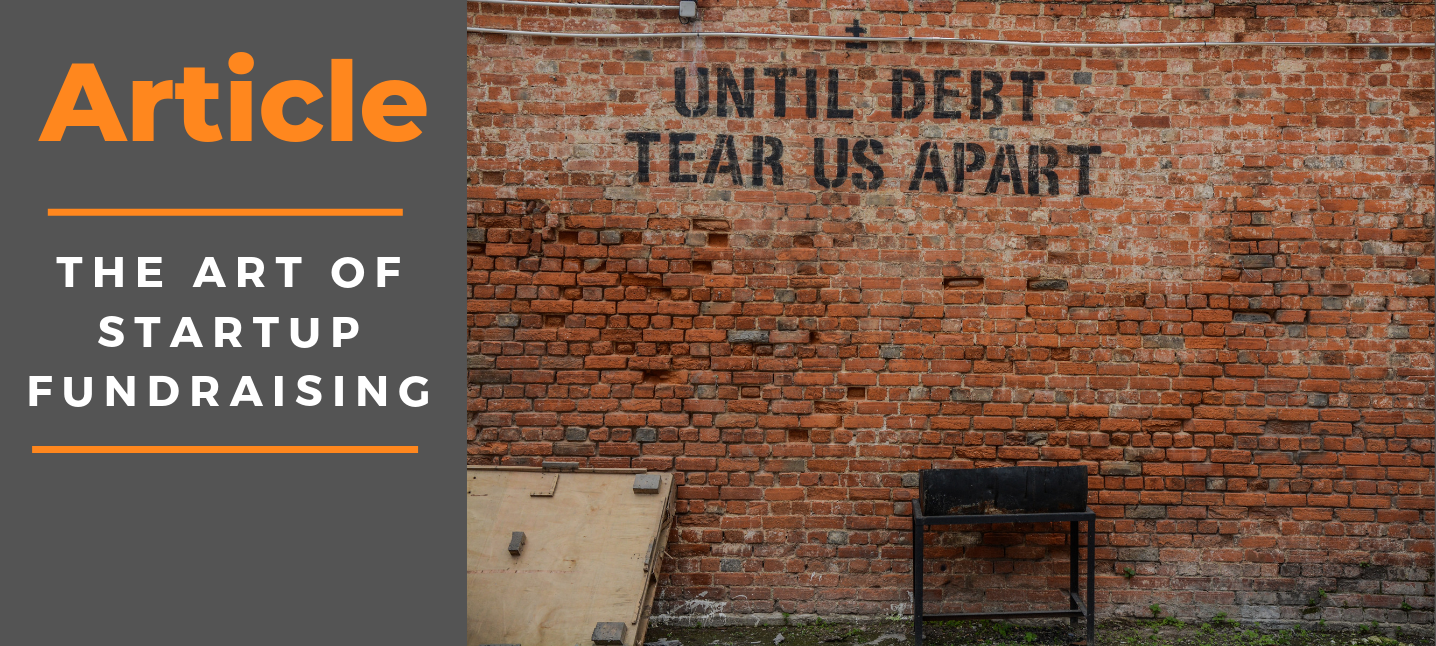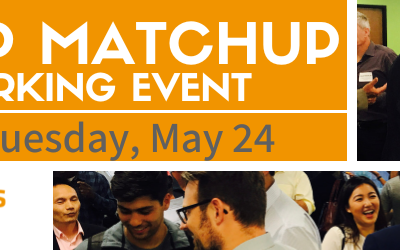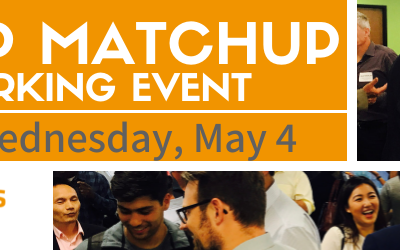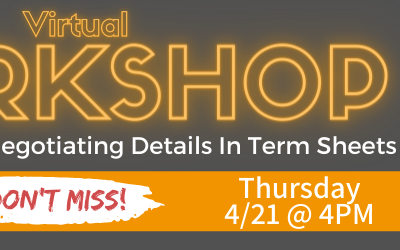The Art of Startup Fundraising



with Eva Khoo (Vertex Ventures) + Bruce Shechter (Band of Angels)
How teams approach startup fundraising can make or break their startup. With so many traps to fall into, some of which only reveal themselves years later, we asked the advice of two experienced investors, Eva Khoo of Vertex Ventures and Bruce Schechter of Band of Angels. During one of our Founders Floor startup events, they answered all sorts of practical questions, from using SAFE notes, the effect of investors on cap tables and more.
How much time and effort will a fundraising round typically take?
Bruce:
Every founder that I’ve ever talked to drastically underestimated the amount of effort it’s going to be. First of all, it is the job of the CEO. If you think you’re going to delegate it, you’re very likely wrong, and I’m probably not exaggerating to say that for many months this could be like a half time job for that CEO.
I find fundraising to be a highly iterative process. Nobody gets it right on their first pitch. You have to assess that. Don’t worry when you fail and you get nasty feedback because you want that, you thrive on feedback.
When you come out of a meeting with a VC or an angel, you should say, “What did we do wrong? How can we do this differently next time? How do we evolve the deck? How do we evolve the way we behave, the way we talk?”
Eva:
Because it’s an iterative process, know that when you are first meeting an investor, you’re basically leaving little breadcrumbs with them. They’re going to latch on to any metric or number that you share with them and then if you resurface a few months later, they’re going to hold you to those numbers.
Everyone always says over-promise and under-deliver, but make sure that whatever you say in those initial meetings, you will feel comfortable repeating this or having it repeated to you a couple of months down the line. That’s going to be how they measure your effectiveness as an execution team.
How do startups end up having a meeting with you?
Eva:
More often than not, the ones that end up going the farthest in our process are ones where we have some kind of relationship with the founder themselves or they managed to introduce themselves through another mutual introduction.
This is a relationship game and the relationships that investors and entrepreneurs have last many years. A foundation of trust is helpful, and a mutual introduction can provide that.
Have I taken an email off a cold LinkedIn message? Yes, absolutely, but this only happens when I feel like it is not entirely random. When I think that they know who I am, they know who my firm is, and it’s a catered message.
Bruce
I want somebody to come to me through somebody I know and trust. Founders that are good at fundraising, on average, are really good at building their network. You can’t begin building your network too early because when you get up there and start fundraising, all that building will pay off. You’re upping the odds that you’re going to know somebody in common with an investor that you target.
What are your thoughts on SAFE notes for fundraising?
Eva:
A SAFE is a convertible note that’s become very popular with Y Combinator and companies that go through Y Combinator. As a result, they are seen as almost the defacto standard for many companies raising seed capital because Y Combinator has made it the defacto for them.
Bruce
I’m a little leery about having a strong opinion because I’m not an expert on the terms and conditions of investment vehicles. However, I will say, I know many of my colleagues at the Band of Angels; we’re kind of old-fashioned. We want to know what we’re buying. With a SAFE – the good news is that it’s straightforward to do it, and it’s quick, and it’s cheap because you won’t pay your lawyer a lot. The bad news is, it doesn’t lock down very well what our rates are going to be in the long term and, arguably, yours either.
So, it’s a difficult call. I mean, my only advice is to get a great lawyer and grill them. You’ve got to understand this stuff way better than I do because you have a lot more at stake.
Eva:
The other thing I’ll note is these SAFEs; they convert into equity upon the pricing of the next round. Also, investors like it because it’s easy. Entrepreneurs like it because it’s easy, but unless you are confident that you know what the value of your company is going to be at that next round, there’s a chance that you could become extremely diluted and lose a lot of your company.
What are some of the key characteristics that make for a successful entrepreneur?
Eva:
Obviously, you have to have a high IQ to build something tech-wise, which is an area we focus on, but I think having a high EQ is an extremely sought-after characteristic, primarily because, as the builder of the company, you’re also going to be the person who’s advocating the vision of the company building a team around you.
You need to have the ability to build a team and represent your company in front of potential buyers. You’re initially the salesperson when you start a company. As investors, we need to have faith that you have the EQ and the ability to do all of those things.
Bruce
First on my mind is grit, just utter dedication to do what it’s going to take. I tend to be leery when somebody comes from a more prominent company because they’re used to having all these people to solve problems and now, all of a sudden, it’s you and the dog.
I love the EQ comment. I would probably expand on that. I heard a gentleman at one of the big VC firms say at one point that, one of their final criteria, before they write the check, is to bring in the founding team and spend a lot of time with them going through all the plans. They look out for “complicators.” Do they tend to go into deep explanation and start to use terms nobody understands?
This gentleman’s point was, everything’s got to be over-simplified and dead clear. They’ve got to be able to talk to the company in a short amount of time, get the big picture, and move on.
You’ve got to practice describing what is your company, what is your strategy, how do you acquire customers? You tell that story in straightforward terms and do it over and over until it just flows mind-boggling clear out of your mouth.
What are some key elements that startups need in a pitch to be able to obtain that sit-down meeting?
Bruce:
Entrepreneurs want to spend way too much time talking about their products itself. For me, that’s 35% of the story. It’s not that hard for me to understand what your product is and what’s special about it. Although you have to do an excellent job with that.
The key things I want to know are, do you know how to build a business around that product? So, in particular, I want to know about your team. We need to believe that these are not just good people; these are phenomenal people. Because if they’re not, there’s plenty of them out there. So, that’s number one.
And number two is my ultimate favorite – go-to-market strategy. The reason that dollars are lost after they’re invested in a company, usually relates to not being able to acquire paying customers fast enough to have a sound financial plan. When dollars are spent investing in a company and then eventually those dollars are lost, this is often because they couldn’t acquire paying customers fast enough to be able to have a sound financial plan. Even in spite of investor dollars coming in, those are not enough.
So, you have to obsess over your go-to-market strategy. You have to answer the question, how will we acquire customers? And, it will evolve.
Eva:
I’d probably add the funnel approach as a key element for a pitch. Where you have to be solving a problem that’s big enough for people to care about in a market that’s big enough for people to care about.
Understand your buyer and how they’re going to purchase and consume your product.
And finally, the team, because we need to be able to believe that you are the team to build and execute on it.
What do you think are some pros and cons of equity crowdfunding?
Eva:
It depends on how much you value the help of an investor. The investor is there to be an advocate, not only to help you build your company but also to help provide introductions and grow your networks for future fund raises – someone to be in your corner.
When you’re doing a crowdfunding campaign, those are all nameless faces. No one’s going to help you. It’s money – there’s value in money, but there’s no value beyond it.
How does crowdfunding, or initial investment rounds, affect the cap table?
Eva:
It gets confusing when an investor comes onboard – they have voting rights. When there’s a messy cap table, it complicates the ability to pass through decisions because you’re chasing down people left, right, and center. So, is it a deal-breaker? No. Does it add a lot of complications and unnecessary headache? Absolutely.
We don’t see crowdfunding campaigns necessarily, but we do see a lot of large friends and family rounds where there are many individuals on a cap table.
Have you considered coming to one of our startup events to see our investors in action? All of our events have Q + A and networking components to them and are held several times a month at Founders Floor HQ in downtown San Jose. Take a look at the latest events >
Watch the talk
Our Startup Investors

Eva Khoo
Investor, Vertex Ventures
Eva is currently an early-stage VC at Vertex Ventures, who have a cumulative committed capital in excess of $2.5 billion. Prior to this, Eva was Chief of Staff and a founding member of Luxe Valet, a venture-backed on-demand startup. Eva launched Luxe’s initial market, supported its nationwide expansion and managed the company’s finances, including recruiting fundraising rounds.
Prior to Luxe, Eva was an investment banker at Goldman Sachs, advising public and pre-IPO companies in the technology, media and telecom space. Eva holds a B.A. from the University of California, Berkeley, an MBA from the Wharton School at the University of Pennsylvania.

Bruce Schechter
Investor, Band of Angels
Bruce Schechter is an investor at the Band of Angels, Silicon Valley’s oldest angel group.
He is an active advisor/investor in a variety of tech startups, including Life360 (50M+ users), Proformative, TreasuryCurve, and Simplure.
He is also the founder and President Emeritus of the Intel Alumni Network. Bruce is active in mentoring student entrepreneurs at both Stanford (StartX Accelerator) and Purdue University. Bruce received a BS in Physics and Math from Purdue University, where he graduated with Highest Honors and Phi Beta Kappa, and he received an MS in Computer Science from Stanford University.
Latest Startup News
Discover more startup insights, trends and advice from our extensive network of experienced investors and founders.
May 24 Startup Matchup & Networking Event
Founders Floor is accepting early-stage startups. Our accelerator program, entrepreneurial coworking environment or funding opportunities could be what you need to help grow your startup. Schedule a meeting to find out how. Tuesesday, May 24 5:00-8:00 pm PT Both...
Startup Matchup & Networking Event
Founders Floor is accepting early-stage startups. Our accelerator program, entrepreneurial coworking environment or funding opportunities could be what you need to help grow your startup. Schedule a meeting to find out how. Wednesday, May 4 5:00-8:00 pm PT Both...
Startup Fundamentals Workshop: Understanding & Negotiating The Details In Term Sheets
Founders Floor is accepting early-stage startups. Our accelerator program, entrepreneurial coworking environment or funding opportunities could be what you need to help grow your startup. Schedule a meeting to find out how. Thursday, Apr. 21 4:00-7:00 pm PST Online...



